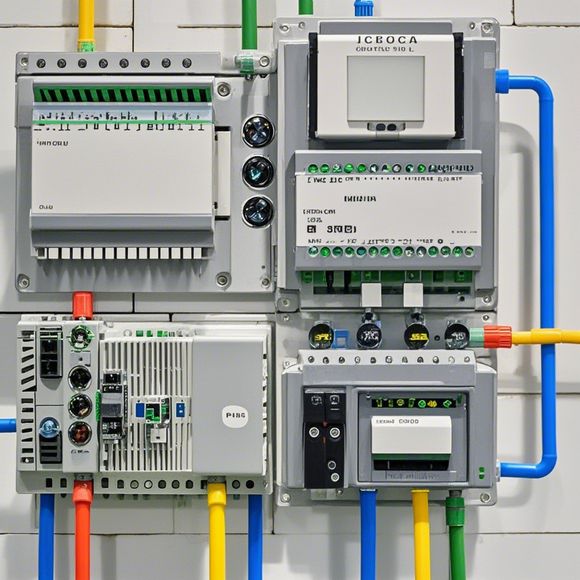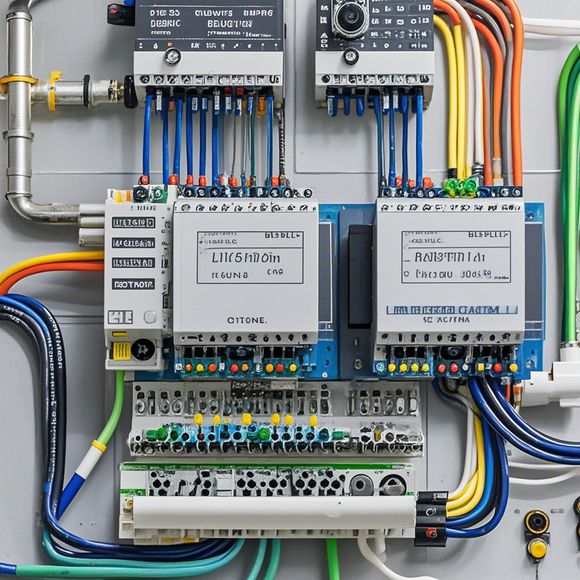PLCs: The Backbone of Modern Manufacturing Systems
Opening line:

Hello, fellow industry enthusiasts! Today, we're going to dive into the fascinating world of Programmable Logic Controllers (PLCs), often referred to as the "brains" behind our manufacturing systems. These versatile devices play an indispensable role in ensuring smooth and efficient operation of industrial equipment. So, let's take a closer look at what makes these controllers so crucial in today's manufacturing landscape.
Introduction:
When it comes to modern-day factories, one thing is certain: the ability to control and monitor complex machinery accurately has become a necessity more than ever. This is where Programmable Logic Controllers come into play – they provide the intelligence needed for automation, allowing machines to operate with minimal human intervention. But how exactly do these marvels work? And why are they essential for any industrial setup? Let's find out!
PLCs are incredibly versatile tools that can be customized to suit the unique needs of each factory. They consist of a central processing unit (CPU) that executes instructions stored in memory chips, along with input/output (I/O) modules that interface with other devices in the system. What sets them apart is their ability to process data quickly and precisely, which is crucial for tasks like monitoring temperature, speed, or pressure levels in various industrial applications.
One of the key features of PLCs is their ability to communicate with other systems within the factory through a variety of protocols, including Ethernet, Profinet, and Modbus. This means that not only can they monitor the status of individual machines, but they can also integrate with other systems such as SCADA (Supervisory Control and Data Acquisition) systems for comprehensive monitoring and control.

Another important aspect of PLCs is their flexibility. They can be configured to handle different types of sensor inputs, from simple analog signals to complex digital inputs. Moreover, they can be programmed to perform a wide range of functions, from simply starting and stopping machines to more intricate tasks like controlling the speed of conveyors or adjusting lighting levels based on changing conditions.
In addition to their technical capabilities, PLCs also play a vital role in enhancing safety in manufacturing environments. By providing real-time information about machine operations and environmental conditions, they help to identify potential hazards before they occur, allowing operators to take proactive steps to prevent accidents. This is particularly important in industries where machinery is used around people, such as food processing or pharmaceutical manufacturing.
Now that we've established the importance of PLCs in modern manufacturing, let's explore some of the ways they can be integrated into different types of industries. For example, in automotive assembly lines, PLCs are used to control the sequencing of parts and the timing of operations, ensuring that cars are assembled correctly without any delays or errors. In chemical plants, they monitor the temperature and pressure of reactants and products, preventing dangerous conditions from developing.
In agriculture, PLCs are used to optimize irrigation systems, ensuring that crops receive the right amount of water at the right time. They can also monitor weather conditions and adjust sprinkler systems accordingly to prevent damage caused by extreme temperatures or rainfall.
Finally, let's consider the future of PLCs. As automation becomes increasingly advanced, there will be even greater demand for these controllers. New technologies such as AI and machine learning may allow PLCs to analyze complex data and make more accurate predictions, further enhancing their effectiveness in various industries. And as we continue to push the boundaries of what's possible in manufacturing, we can expect to see even more exciting developments in the field of PLCs.

Conclusion:
In summary, Programmable Logic Controllers are an indispensable part of today's manufacturing ecosystem, providing the intelligence needed to run complex machinery efficiently and safely. With their ability to communicate with other systems, their flexibility in handling different types of sensor inputs, and their proven track record in enhancing safety and efficiency, PLCs are poised to play an increasingly important role in the years to come. So if you're looking to stay ahead of the curve in your industry, investing in PLCs is definitely worth considering!
Content expansion reading:
Articles related to the knowledge points of this article:
PLC Programming for Automation Control in the Manufacturing Industry
How to Use a PLC Controller for Your Business
PLC (Programmable Logic Controller) Control System Basics
Plumbers Rule! The Role of PLC Controllers in the World of Waterworks
The Role of Programmable Logic Controllers (PLCs) in Foreign Trade Operations